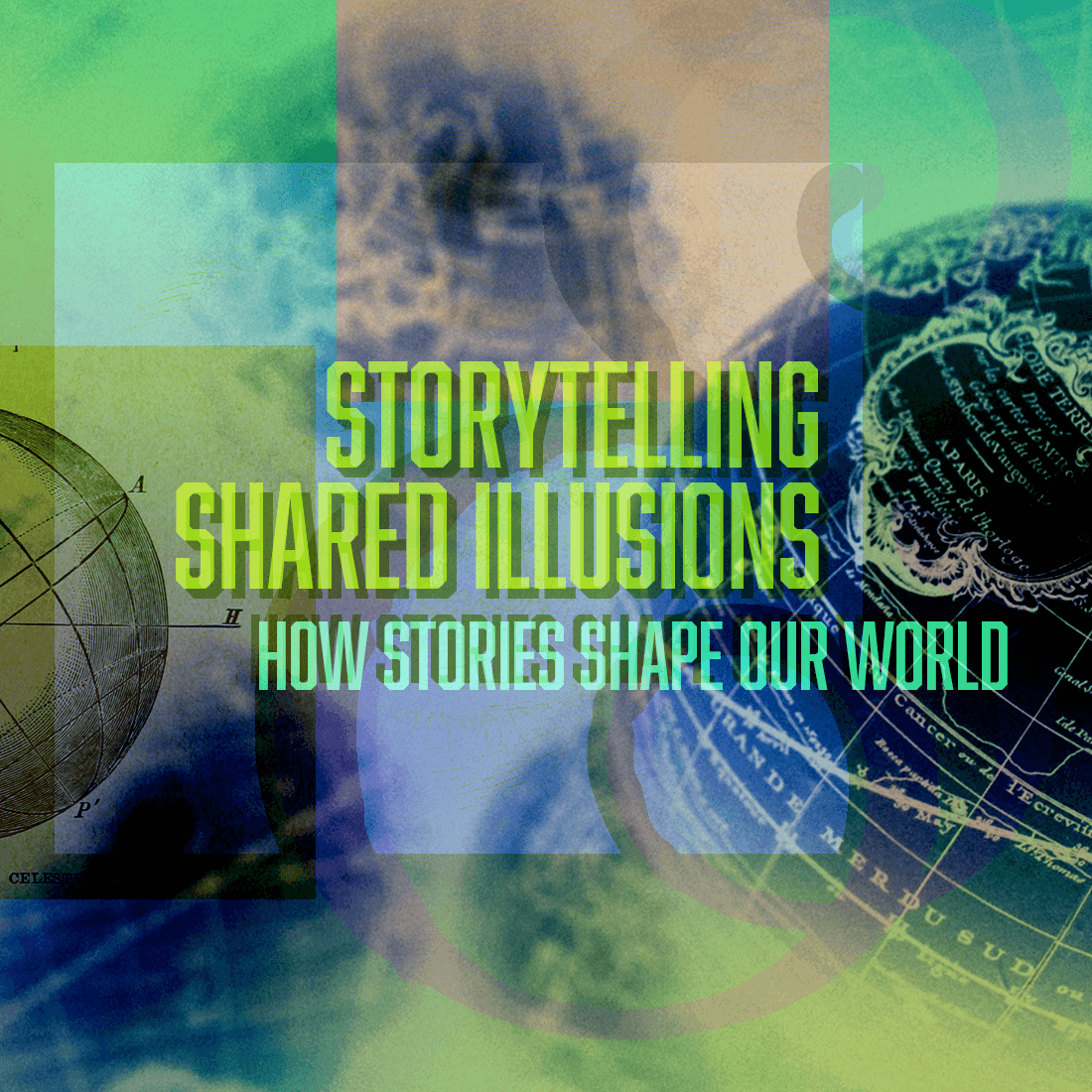NATALIE GALLAGHER
As we go through our days, we all play a multitude of roles. We are children, parents, and siblings. We are colleagues, employees, and bosses. We are friends, lovers, and exes. We are beautifully flexible, adjusting our sense of self to the demands of a situation. We act casual with our friends, formal with our managers, and somewhere in between with our colleagues. We change the way we dress, how we speak, and whether we’re willing to show up late. This creates an ethical quandary around self-representation. If we are different things to different people all day long, are any of these things true? Are they all, in some measure, a lie — some elaborate form of deception? Add to the mix social media and we now have, in a manner unprecedented in human history, a plethora of externalized representations of ourselves. Images we construct and put out in the world, for the consumption of others. How do we decide which roles to play in which places? To what environment do we respond in making that determination? What “self” shall we put on for ourselves and the world today?
Social media platforms provide the opportunity for structured expression of different parts of ourselves, and even encourage particular kinds of representations.
Let us consider a few of these social media platforms and the kinds of personal representations they encourage:

Facebook: Your Ideal Self
Facebook is, of course, the behemoth of social media. It’s been the subject of its own highly-rated feature film, and is newsworthy both for simple changes in policy and as a means of discussing the effects of social media. A lot of users (66%) also get their news here, and the company is currently trying to reduce the amount of fake news its algorithms automatically spread.
Founded in 2004, its stated mission is “to give people the power to share and make the world more open and connected. People use Facebook to stay connected with friends and family, to discover what’s going on in the world, and to share and express what matters to them.” Who we “are” on Facebook has received a lot of think-pieces and some academic study, circling around the idea that we present our ideal selves — rather than our actual selves — in this space. Crucial to this is the fact that fake names are not permitted by Facebook; anonymity is not an option. What is an option is who sees what we post and do on Facebook. By default, your information is shared with people whom you have accepted as friends. While acknowledging the distance between a friend on Facebook and a friend in your everyday life, this control allows Facebook users to know how to curate their profiles for the consumption of family and friends. Given the ubiquity of Facebook use, it’s our ideal selves as we wish everybody else saw us — our most perfected version.
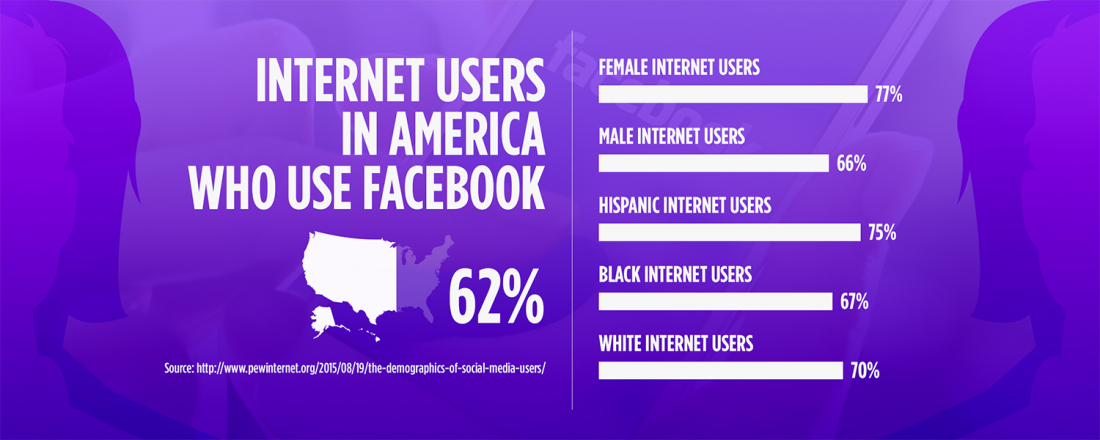
Source: Pew Research Study
Estimated Unique Monthly Visitors: 1,100,000,000
Instagram: Your Aesthetic Self
Instagram is considerably younger than Facebook, having only started in 2010. However, it’s been growing rapidly, with the number of users doubled between 2012 and 2015. Focused on photos, it has two ‘about us’ statements: “a community of more than 500 million who capture and share the world’s moments on the service” and “a global community that shares more than 95 million photos every day.” Unlike Facebook, Instagram accounts are public by default, and there is no requirement that your account bears your legal name. Strangers can look at your profile and like your pictures. Instead of your ideal self, it may be that Instagram allows more freedom to try out representations further away from your everyday self — especially if they’re aesthetically pleasing.
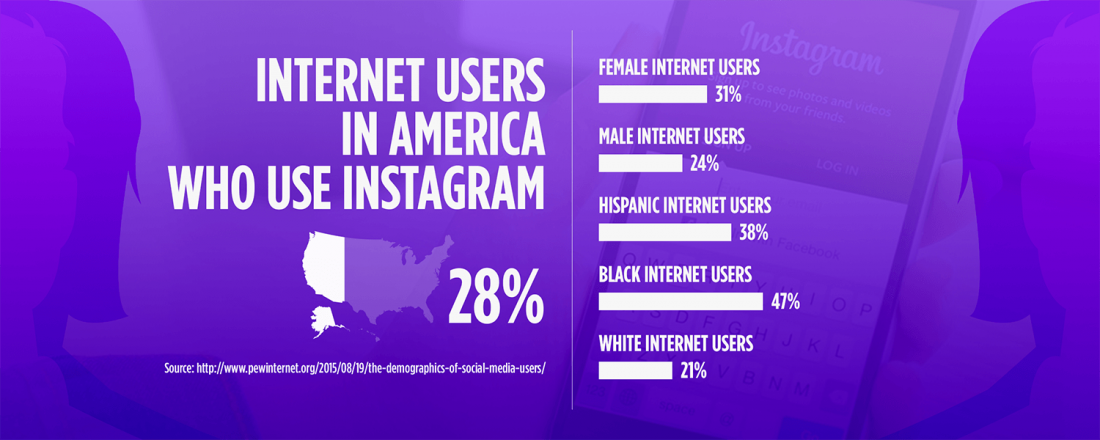
Source: Pew Research Study
Estimated Unique Monthly Visitors: 100,000,000
Twitter: Your Opinionated Self
Twitter, which has been around since 2006, is famous for the concise nature of its unique mode of communication. It has been part of political upheaval, celebrity backlash, and news going viral. It’s the origin point of hashtags, which now exist across most social media platforms and are a key component in marketing, politics, and social movements like #BlackLivesMatter. Its self-stated mission is “to give everyone the power to create and share ideas and information instantly, without barriers.” Twitter invites you to be your most opinionated self; 140 characters may not be enough for nuance, but it should be enough to make a blanket statement.
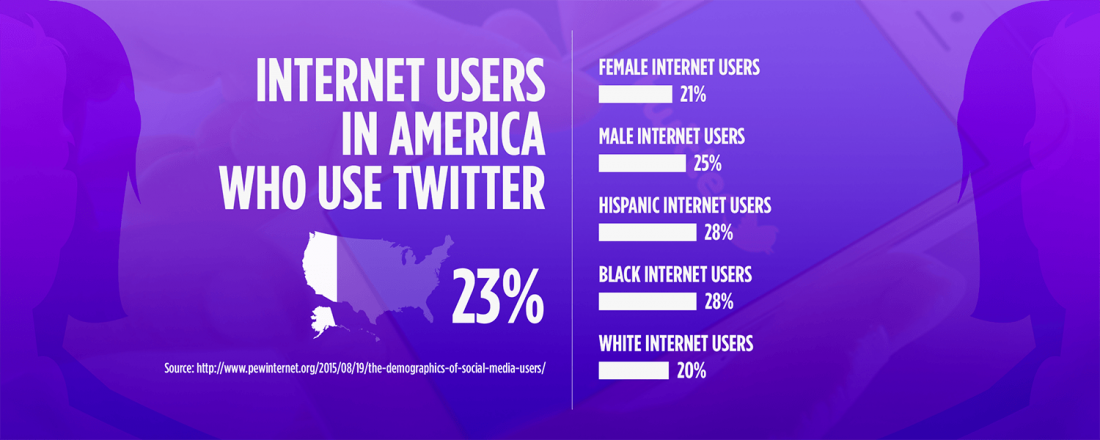
Source: Pew Research Study
Estimated Unique Monthly Visitors: 310,000,000
LinkedIn: Your Professional Self
LinkedIn takes self-promotion in social media to a different level by making its mission statement “to connect the world’s professionals to make them more productive and successful. When you join LinkedIn, you get access to people, jobs, news, updates, and insights that help you be great at what you do.” Around since 2002, this social media platform formalizes the occupational benefits people can get from various social networks. Instead of getting a tip from another regular at your bar, or going to an alumni meet-and-greet, you directly contact people for professional reasons. Recruiters and human resources departments can also contact you directly through LinkedIn. As a logical result, LinkedIn profiles are created with the same kind of scrutiny as cover letters and resumes — all in an effort to achieve the perfect professional self.
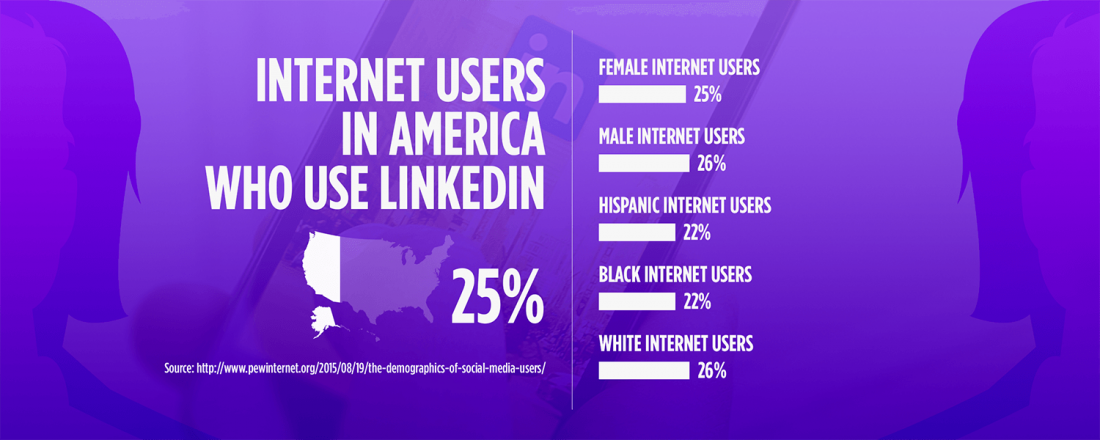
Source: Pew Research Study
Estimated Unique Monthly Visitors: 255,000,000
Reddit: Your Extreme Self
In stark contrast to the rest of the social media platforms discussed here, Reddit is entirely anonymous. According to the site, “Reddit bridges communities and individuals with ideas, the latest digital trends, and breaking news (… okay, and maybe cats). Our mission is to help people discover places where they can be their true selves, and empower our community to flourish.” Established in 2005, the platform is a compilation of massive quantities of conversation boards. People respond to each other’s posts and can “upvote” or “downvote” the posts of other people. The anonymity of the forum might make it easier to discuss opinions you know are unpopular. However, it also seems to contribute to a herd mentality among users. So Reddit, perhaps, gives you leeway to be more extreme in your opinions than you would otherwise be as your everyday self.
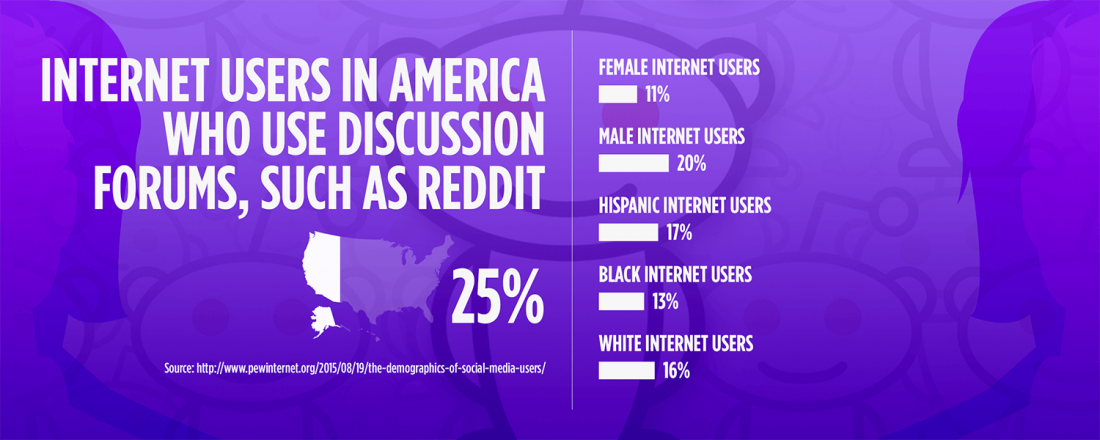
As it was difficult to find data on Reddit alone, the following is based on visitor data to discussion forums, of which Reddit is one of the most popular | Source: Pew Research Study
Estimated Unique Monthly Visitors: 85,000,000
While we know that people shift between social roles all the time, the degree of difference between those “selves” is up for debate. It may be that social media ends up reinforcing the differences in how we display different parts of ourselves: ‘consummate professional’ on LinkedIn; ‘extremely casual’ on Reddit. It may also be that social media blur these lines for us, such that what seemed to be different roles are now united: friends and bosses can both look at your Facebook profile. Scientists are increasingly using Twitter to release research findings in advance of the achingly slow academic publication process. Wedding planners advertise on Pinterest. Taylor Swift’s Tumblr is a triumph in personality marketing as well as self-expression. YouTubers become pop stars and Snapchat is becoming the source of breaking news.
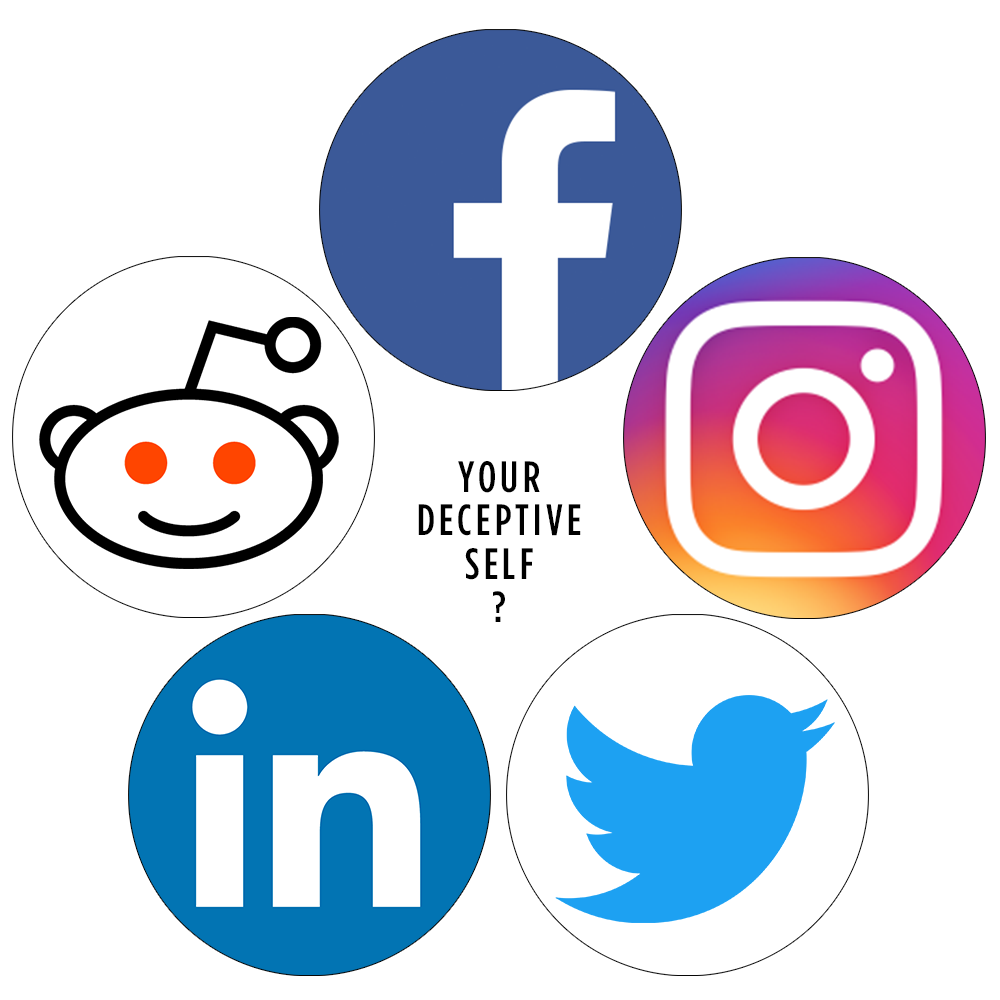
So where does this leave us in terms of deception? Social media platforms provide the opportunity for structured expression of different parts of ourselves, and even encourage particular kinds of representations. If social media is encouraging people to focus exclusively on certain parts of themselves, that could be seen as deceptive. However, the permanence of these means of expression — the Internet is forever, after all — may actually encourage honesty. Perhaps, then, social media is actually exposing a crucial flaw; perhaps, by embracing the many different roles we all play in our daily lives, we become more honest rather than being dismayed by it all.



